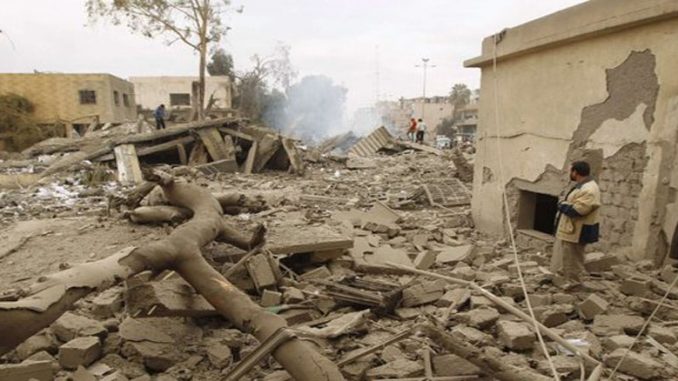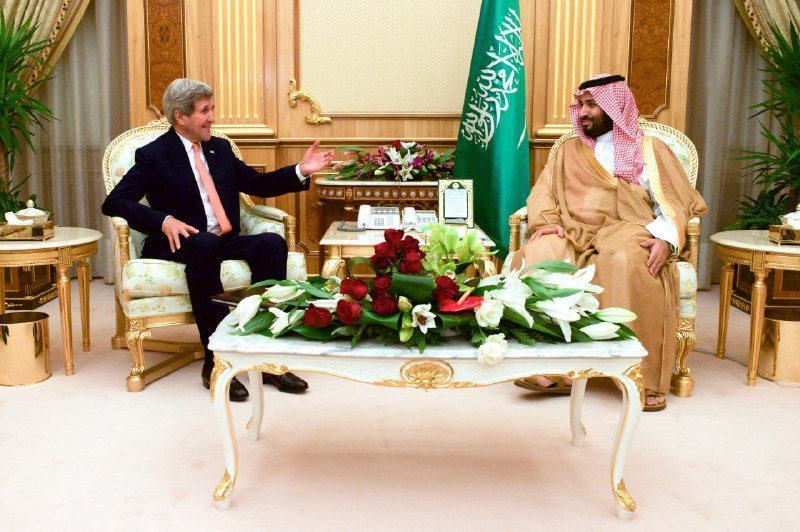
Turkish government minister Wednesday called for military force to be used against Bashar al-Assad’s regime in order to prevent further atrocities against civilians.
EU Affairs Minister Ömer Çelik said that Assad had manipulated efforts to resolve the six-year conflict in Syria while carrying out attacks on civilians.
“The world needs to use force to stop the massacres,” he told Anadolu Agency during a visit to Adana province in southern Turkey.
“We have always talked about the political solution until now but we know how Assad blocked the political solution processes. When the political solution is alive, the answer given by Assad is chemical weapons.”
Çelik did not say whether Ankara would be willing to provide troops for any military force against Assad, who is backed by Russia and Iran.
Turkey ended a seven-month operation in northern Syria last month that had been aimed at ridding the region of terrorists.
Last week, a chemical attack in Khan Sheikhun carried out by Assad forces left more than 100 civilians dead. Authorities in Turkey who have treated some of the survivors have said that sarin gas was used.
At the end of last year, Russia and Turkey brokered a cease-fire that has been widely breached despite peace talks in Astana and Geneva.
“Assad must end his policy of killing through the use of chemical or standard weapons,” Çelik added. “Otherwise, the political solution will not be put in practice.”
According to the UN envoy on Syria, more than 400,000 people have been killed in the conflict.
Experts say that the US strike seems to be a cosmetic one, and is unlikely to escalate further. However, in the case of an escalation, the US would surely need to use Turkey’s strategic southern airbase of Incirlik as a staging area for major incursions into Syria.
Ahmet Han, international relations professor at Istanbul’s Kadir Has University, said Turkey will now have to follow a more reactive policy on Syria that will be mainly focused on the preferences of Russia and the US.
“The priorities of Turkey and Russia are clearly divergent on the Syria issue. Turkey may search for a common understanding with the US, but the latter does not seem to transform its position in favor of Turkey,” Han said.
Han also noted that Ankara’s calls for a no-fly zone in Syria would probably remain unanswered. He added: “Whenever parties that are able to enforce such a measure in Syrian quagmire refer to a ‘no-fly zone’, what they mean by the concept seems to involve vast differences.”
Metin Gurcan, an ex-military officer and security analyst at the Istanbul Policy Center, said it is still too early to talk about any implications regarding Ankara’s calls for a no-fly zone in Syria.
“The east of the Euphrates is under the US zone of influence, while Russia thinks that the west part of it is under its influence in terms of airspace dominance; and this strike strengthened the profile of the US for the first time in the western part of the Euphrates,” Gurcan said.
However, according to Gurcan, Ankara unnecessarily makes hasty statements against this US-Russia imbroglio about northern Syria.
“Ankara looks sandwiched between Trump and Putin in its Syria policy, and its policy stances, which are changing each week, create unpredictability and a confidence problem,” he said.
“In order to get support for its demands for a no-fly zone, Turkey should stick to its principles while taking Russia as a counterpart for a no-fly zone in the western Euphrates, and the US for the eastern part.” Choice over Russia According to Gurcan, Ankara will be influenced the most, especially after Russia announced that it would reduce military cooperation with the US, and Ankara will have to make a choice.
In this regard, Cavusoglu told reporters on April 7 that Turkey has initiated contacts with Russian Foreign Minister Sergei Lavrov and US Secretary of State Rex Tillerson, who already paid a strategic visit to Ankara to discuss possible cooperation avenues with Turkey against Daesh.
Gurcan also noted that from now on Turkey should not respond militarily in the region around the Euphrates, as neither the US nor Russia would tolerate this when designing their own regional plans.
“Creating de facto micro realities to gain more leverage at a diplomatic level in Syria is now over for Ankara,” Gurcan said.
Oytun Orhan, a researcher on Syria at Ankara-based think-tank Orsam, said the latest US attack might create a suitable environment for cooperation over safe zones in Syria. “But the problem is that it is too hard for both to unite on where to establish these safe zones. Turkey will oppose to establish a safe zone in YPG (Kurdish People’s Protection Units) areas, which will consolidate their entity,” Orhan said.
According to Orhan, a Turkish military response in Syria would totally depend on possible Turkey-US cooperation.
“If this latest attack paves the way for a US-Turkey cooperation, then we could expect that the country may extend its military operations in Syria, including Manbij, Afrin and Idlib,” he noted.
At the end of last year, Russia and Turkey brokered a cease-fire that has been widely breached despite peace talks in Astana and Geneva.
According to the UN envoy on Syria, more than 400,000 people have been killed in the



